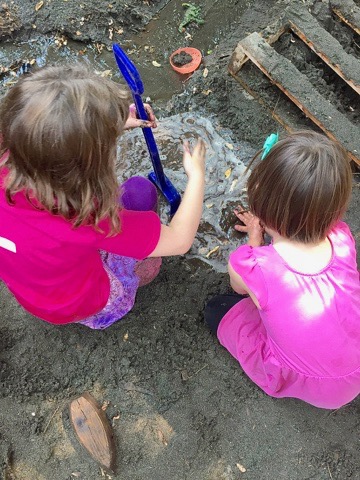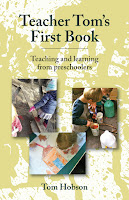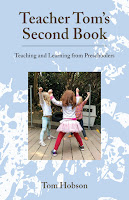"Adolescence" was invented in the mid-1800's by the warlike Prussian nation. They had just suffered a humiliating military defeat at the hands of Napoleon and felt their downfall was due, at least in part, to their soldiers not being obedient enough. Some had even run away at the prospect of dying for their nation.
Part of their plan to create a more loyal and malleable population was the invention of schools. As Tyson Yunkaporta writes in his book Sand Talk, the idea was to slow the "transition from childhood to adulthood, so that it would take years rather than, for example, the months it takes in Indigenous rites of passage." The goal was to "create a permanent state of childlike compliance in adults," so they designed schools around the same methods used to break horses and other domestic animals: separating the young from their parents, confining them in enclosed spaces, limiting access to their natural habitat, and using rewards and punishments to force compliance with meaningless tasks. This Prussian method of compliance-based schooling was a boon for both for the military as well as the economy, which is why it became the foundation for most of what passes for education in the industrialized world today.
Shockingly, but perhaps not surprisingly, the Prussian slogan for their educational system was Arbiet macht frei (Work sets you free), which was infamously employed a century later at the gates of Nazi concentration camps.
We tell children they can grow up to be anything they want to be. We say it even though we know it's a lie. Most of us do not get to be whatever we want to be. We say it, however, because others have said it to us. We say it because we don't want to crush their little spirits with the truth that work is in their future. We say it because it the is one of the mantras we use to inspire them to keep their noses to the grindstone. Oh sure, we allow them to play at being artists, dancers, princesses, and athletes, but only while they are very young. Soon enough, and in some cases even during their preschool years, we begin to pressure them, both subtly and not-so-subtly to at least prepare a "fall back plan," like accounting or computer science.
I imagine there are some readers here who are thinking, "But, Teacher Tom, you can be anything you want to be. You only have to work hard enough and never give up." How is that different than Arbiet macht frei?
A few days ago US Secretary of Education Migual Cardona sent a message from an official social media account: "Every student should have access to an education that aligns with industry demands and evolves to meet the demands of tomorrow's global workforce." People try to tell me that today's schools are nothing like the old Prussian model, but even our top education policymaker seems to disagree. We are here, it seems, to serve the economy, not the other way around. Arbiet macht frei?
Yunkaporta points out that the word "work" does not even exist in many Indigenous languages. Indeed, the "work" his people did do prior to colonization was confined to a couple hours a day and was comprised of things many of us now do as a break from work like gardening, cooking, hunting, hiking, camping, and fishing. They spent the rest of their time building relationships, making art, dancing, playing games (almost always cooperative), telling stories, and making music. Indeed, they spent their time doing the very things that our youngest children do when left alone to be whatever they want to be -- not when they grow up, but right now. Play, not work, sets us free.
In many ways, "You can be anything you want" is just the contemporary version of Arbiet macht frei. In many ways, our complaints about children being distracted, not staying on task, and only wanting to play video games all day, are the very complaints the colonizers had about Indigenous people they encountered around the globe. And just as we did with those populations, we are doing to our children, generation after generation. No wonder societal change is nearly impossible. No wonder the rich keep getting richer. No wonder inequality of one kind just morphs into inequality of another. We are taught that a life of work will somehow set us free, when all it really does is sustain the economy.
You might ask: But what can we do about it? After all, this is the way it is. Certainly, we can't tell our children to just stop working. Believe me, I get that. I've spent the better part of the past two decades trying to get people to see that there is a better, more democratic, more equitable, and more human way to do school; that play, not work, is the secret to a population of critical thinkers instead of obedient drones. And I'm not the only one. Yet it doesn't seem we've moved the needle very much, except perhaps in some small corners where play is nurtured and protected like an endangered species.
And that's what we can do. The Prussian model seeks to create a population for whom work, no matter how mind-numbing or back-breaking, is the only hope. That's why they try to inspire us with the promise of a freedom that will never come. When we keep play alive in our own lives, in the lives of our children, even if it is just in the nooks and crannies, we are creating real hope for freedom. If you are reading this, you are probably one of those people keeping play alive. In this world, play is the one thing that can us genuine hope. It is the only path to freedom. And that is why play is the greatest threat to the status quo.
It's play, not work, that will set us free.
******
"Teacher Tom, our caped hero of all things righteous in the early childhood world, inspires us to be heroic in our own work with young children, and reminds us that it is the children who are the heroes of the story as they embark on adventures of discovery, wonder, democracy, and play." ~Rusty Keeler
If you liked reading this post, you might also enjoy one of my books. To find out more, Click here!
I put a lot of time and effort into this blog. If you'd like to support me please consider a small contribution to the cause. Thank you!




